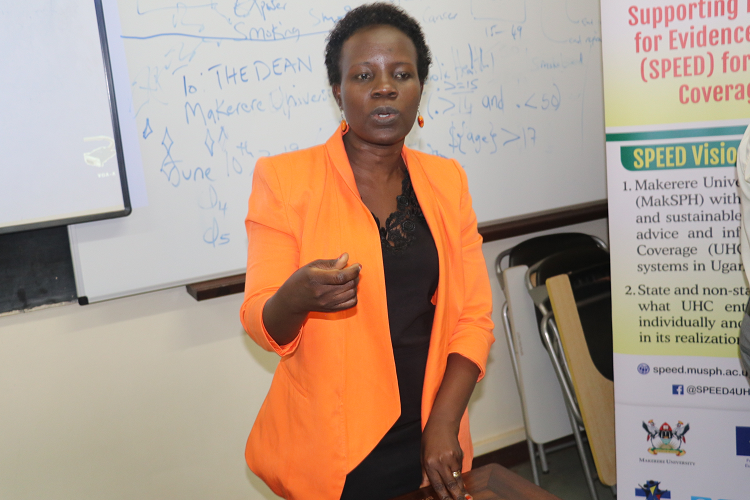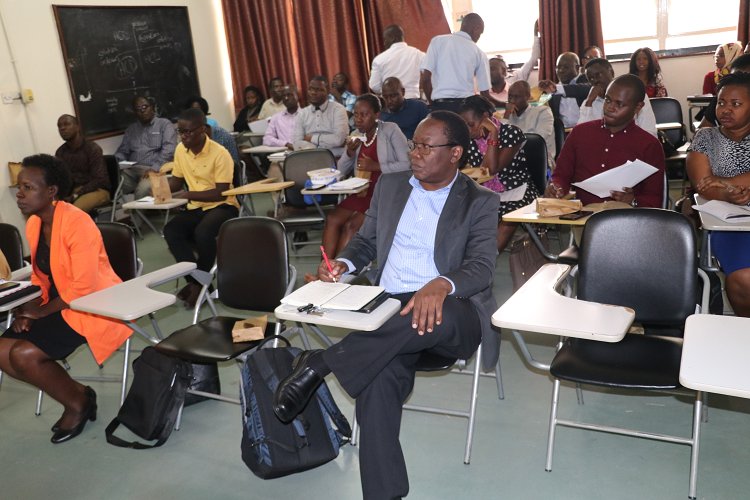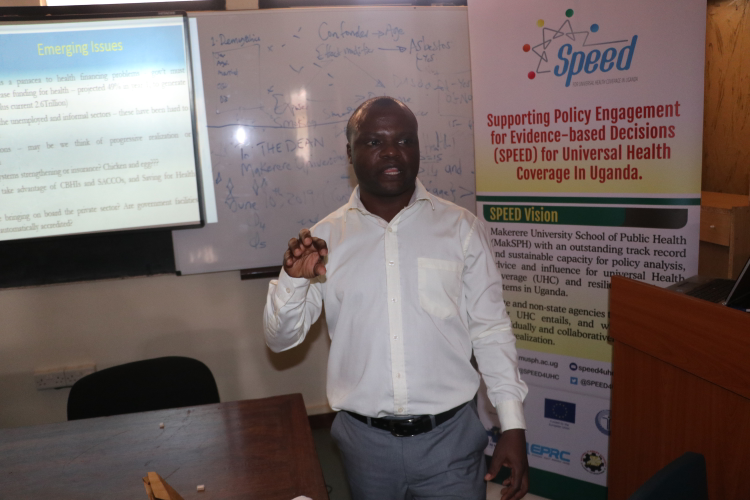
(Dr. Elizabeth Ekirapa Kiracho urges government to have a platform where voices of aggrieved clients of the National Health Insurance Scheme can be captured once the bill comes into existence. Dr. Ekirapa is a Health Economist and the Head of Department of Health Policy Planning and Management.)
Accessing quality healthcare is a challenge for a huge percentage of Ugandans. In this light, the government of Uganda has drafted the National Health Insurance Scheme (NHIS) Bill. This bill is intended to facilitate the provision of accessible, affordable acceptable and quality healthcare services to citizens irrespective of their age, economic, health and social status. The bill is also intended to develop health insurance as a complementary mechanism of healthcare financing and ensure efficiency in healthcare services. The bill is in its formative stages and has been a subject of national discussion. It will soon be progressing to the parliamentary debate stage.
The Seminar was chaired by Prof. Freddie Sengooba, the Lead Researcher on the SPEED project which is housed at Makerere University School of Public Health (MakSPH).
To contribute to this dialogue, the MakSPH community held a discussion to solicit the ideas of its members with the intention of shaping the various proposals in the bill before it progresses to the parliamentary debate stage.
Presenting at the dialogue meeting on a topic entitled "The current health financing structure of Uganda,” Chrispus Mayora, a Health Economist with the SPEED Project, and a faculty member of MakSPH, noted that funding for health is below average and more resources were needed if the country was to achieve the Universal Health Coverage (UHC) goal.
While the World Health Organisation recommended a per capita public health expenditure of $86, Mr Mayora stated that the current amount in Uganda stands at $52. This implies that a big deficit that needs to be covered from other sources, he added.
"The NHIS is one approach to increase resources into the health sector, but it should not be looked at as the alpha and omega of all health financing challenges in Uganda.
Even with insurance, government must continue to increase funding for health to cater for health systems strengthening, human resources, infrastructure, and other critical investment areas," Mr Mayora explained further. He argued that there is need to leverage on community-based insurance and other SACCOs that already exist within communities to bring as many people on board to embrace NHIS.
In his conclusive remarks, Mayora advised Ministry of Health and all insurance stakeholders to build trust and provide enough information to the public about the scheme and packages being proposed to address unnecessary expectations.
In her presentation, Dr Elizabeth Ekirapa Kiracho stressed the importance of valuing insured persons. Dr Ekirapa is the Head of Department of Health Policy Planning and Management at MakSPH, a Senior lecturer and a Health Economist.
She said, "In insurance, it's important to make people satisfied this will mean having competent managers and a transparent leadership that can settle disputes of clients and service providers.” Citing the current Ghanaian insurance system, Dr Ekirapa proposes the introduction of a toll-free fora where aggrieved and satisfied clients can report their experiences. She also noted that a centralised accreditation of insurance offices may not be able to identity loopholes in local systems like the quality of facilities and of potential insurance service providers.
Dr Ekirapa therefore recommended the creation of regional and local boards since they are on ground to identify issues like facility quality. She called for appropriate training, sensitization and integrity, when dealing with insurance matters.
Written by Joseph Odoi



